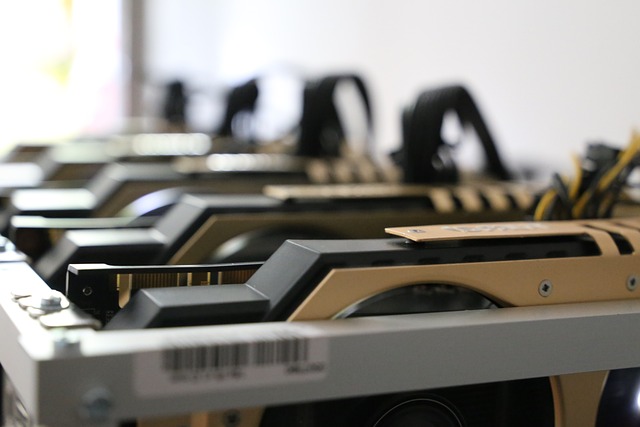Decentralized Finance Company: Beyond the Name
Decentralized Finance Company: Beyond the Name

What is a Decentralized Finance Company
A decentralized finance company, often referred to as a DeFi company, is an innovative financial institution that operates on blockchain technology. Unlike traditional centralized finance institutions, such as banks, DeFi companies aim to eliminate intermediaries and offer financial services directly to users. They leverage smart contracts, which are self-executing contracts with the terms and conditions directly written into the code, to automate financial transactions and ensure transparency.
One of the key principles of decentralized finance companies is the concept of decentralization itself. In a decentralized system, decision-making power is distributed among multiple participants rather than being concentrated in a central authority. This empowers individuals, removes the need for intermediaries, and enables peer-to-peer interactions. By removing the need for intermediaries, decentralized finance companies aim to reduce costs, increase efficiency, and provide financial services to those who may be excluded from traditional financial systems.
Understanding the Concept of Decentralization in Finance
Decentralization has become a buzzword in the finance industry, but what exactly does it mean? Simply put, decentralization in finance refers to a system where financial transactions, governance, and decision-making are not controlled by a single central authority. Instead, they are distributed among a network of participants, often facilitated by blockchain technology. This shift away from centralized control offers several advantages, such as increased transparency, reduced costs, and improved access to financial services for individuals who may be excluded from traditional banking systems.
By eliminating the need for intermediaries and centralized institutions, decentralized finance (DeFi) aims to empower individuals to have full control over their financial assets and transactions. In a decentralized financial system, anyone with an internet connection can participate and interact with the network, without the need for permission or reliance on a trusted third party. This fundamental shift is bringing greater financial inclusion, as individuals from all corners of the world can access services like lending, borrowing, trading, and investing with minimal barriers. As we dive deeper into the world of decentralized finance, it’s important to explore the various benefits and potential risks associated with this transformative concept.
The Benefits of Decentralized Finance Companies
Decentralized finance companies offer a range of benefits that are reshaping the financial landscape. Firstly, these companies empower individuals to have full control over their own financial transactions without the need for intermediaries. With traditional financial institutions, users often have limited access to their own funds, and transactions are subject to lengthy processing times. In contrast, decentralized finance companies utilize blockchain technology to enable fast and secure transactions, allowing users to have direct ownership and control over their assets. This level of control not only increases efficiency but also reduces the risk of fraud and external interference.
Secondly, decentralized finance companies promote financial inclusion by providing services to the unbanked and underbanked populations. In many parts of the world, traditional financial systems have failed to reach underserved communities, leaving them without access to basic financial services. However, decentralized finance companies can leverage blockchain technology to provide these communities with affordable and accessible banking services. By eliminating the need for a physical presence or reliance on traditional banking systems, decentralized finance companies can bring financial services to remote areas and bridge the gap between the banked and the unbanked. This has the potential to empower individuals and drive economic growth in previously marginalized regions.
The Potential Risks and Challenges of Decentralized Finance Companies
Decentralized finance companies have gained significant attention in recent years, offering a promising alternative to traditional financial institutions. However, like any new and innovative concept, they come with their fair share of risks and challenges. One of the primary concerns is the lack of regulation and oversight in this sector. Traditional financial institutions operate under strict regulations to safeguard against fraud, money laundering, and other illicit activities. In contrast, decentralized finance companies often operate outside of these frameworks, which can leave users vulnerable to potential scams and security breaches.
Another challenge faced by decentralized finance companies is the potential for smart contract vulnerabilities. These companies heavily rely on smart contracts, which are digital agreements that automatically execute transactions once predefined conditions are met. While smart contracts offer efficiency and transparency, they are not immune to programming errors or malicious attacks. Any flaw in the code or successful hacking attempt can lead to the loss of funds or unauthorized access to sensitive information. This poses a significant challenge in terms of maintaining trust and ensuring the security of users’ assets within the decentralized finance ecosystem.
How Decentralized Finance Companies are Revolutionizing the Banking Industry
Decentralized finance companies (DeFi) have emerged as a game-changer in the banking industry, disrupting the traditional financial system and revolutionizing the way transactions are conducted. One of the key ways in which DeFi companies are reshaping banking is through the elimination of intermediaries. Unlike traditional banks, DeFi platforms operate on blockchain technology, enabling peer-to-peer transactions without the need for a central authority. This not only reduces costs but also enhances transparency and efficiency.
By removing the reliance on intermediaries, DeFi companies empower individuals to have direct control over their finances. They offer a wide range of financial services, including lending, borrowing, investing, and trading, all accessible through decentralized applications (dApps). These dApps are built on smart contracts, which automatically execute transactions once predefined conditions are met. Consequently, individuals can transact securely and seamlessly without the need for third-party involvement. This decentralized approach not only removes the barriers faced by traditional banking systems but also opens up a world of financial opportunities for individuals around the globe.
Exploring the Key Features and Functions of Decentralized Finance Companies
Decentralized Finance (DeFi) companies have gained significant attention in recent years due to their innovative features and functions. These companies operate on blockchain technology, allowing for a transparent and secure network without the need for intermediaries like banks. One key feature of DeFi companies is their ability to offer various financial services such as lending, borrowing, and trading. Unlike traditional financial institutions, DeFi platforms eliminate the need for paperwork and lengthy processes, enabling users to access these services quickly and easily.
Another notable function of DeFi companies is their flexibility and inclusivity.

Examples of Successful Decentralized Finance Companies in the Market
The market for decentralized finance companies has witnessed the rise of several successful players that have transformed the way financial services are accessed and used. One such notable example is MakerDAO, which is known for its stablecoin, Dai. By leveraging blockchain technology, MakerDAO ensures that the value of Dai remains stable, providing users with a reliable digital currency that can be used for various purposes such as payments, investments, and loans. This stability has contributed to MakerDAO’s success and established it as a key player in the decentralized finance space.
Another successful decentralized finance company is Compound, a lending platform that allows users to earn interest on their digital assets or borrow against them. Through its algorithmic interest rate model, Compound ensures that interest rates remain competitive and market-based, providing an attractive alternative to traditional lending and borrowing platforms. The ease of use and transparency offered by Compound have played a significant role in its success, attracting a growing number of users who value the benefits of decentralized finance.
The Role of Blockchain Technology in Decentralized Finance Companies
Blockchain technology plays a crucial role in decentralized finance companies, revolutionizing the way financial transactions are conducted. By leveraging the power of blockchain, these companies eliminate the need for intermediaries and establish transparent and secure systems. Through blockchain’s distributed ledger technology, transactions are recorded and verified, ensuring immutability and trust.
One of the key features of blockchain technology is its decentralized nature. This means that there is no central authority controlling or managing the transactions, making it highly resistant to censorship and tampering. Each transaction is validated by multiple participants in the network, creating a consensus mechanism that enhances security and removes the possibility of fraudulent activities. Moreover, blockchain technology provides transparency and traceability by allowing all participants to view and audit the transaction history, ensuring accountability and reducing the risk of corruption.
By harnessing the power of blockchain technology, decentralized finance companies are able to offer innovative financial solutions that are not reliant on traditional banking systems. With the ability to provide instant cross-border payments, access to financial services for the unbanked, and seamless peer-to-peer lending, these companies are reshaping the financial landscape. However, as with any transformative technology, there are potential risks and challenges that need to be addressed to ensure the widespread adoption and long-term success of decentralized finance companies.
How Decentralized Finance Companies Ensure Security and Privacy for Users
Decentralized finance companies have become a reliable solution for individuals seeking enhanced security and privacy while engaging in financial transactions. Through the implementation of blockchain technology, these companies offer users a decentralized and transparent platform where they can conduct financial activities securely.

One way in which decentralized finance companies ensure security and privacy is by utilizing encryption techniques. Each transaction is secured using cryptographic algorithms, making it almost impossible for hackers to manipulate or access user data. Additionally, decentralized finance companies prioritize user privacy by enabling pseudonymous transactions. Instead of revealing personal details, users are identified by unique cryptographic keys, safeguarding their identity and minimizing the risk of identity theft. This increased security and privacy offered by decentralized finance companies have attracted a growing number of individuals who value the protection of their financial information.
The Future of Decentralized Finance Companies and Their Impact on the Global Economy
The future of decentralized finance companies holds immense potential and is set to have a significant impact on the global economy. As traditional financial systems face increasing scrutiny and limitations, decentralized finance offers a fresh approach that empowers individuals and reduces reliance on centralized institutions. By leveraging blockchain technology, decentralized finance companies are able to provide a range of financial services to a global audience, without the need for intermediaries or third-party involvement.
One of the key advantages of decentralized finance companies is the increased accessibility they offer. Unlike the traditional banking system that often excludes a large portion of the global population, decentralized finance opens up opportunities for individuals across the world to participate in various financial activities. This inclusivity has the potential to foster economic growth in developing nations and empower individuals who have been historically underserved by traditional financial institutions.

• Decentralized finance companies empower individuals and reduce reliance on centralized institutions
• They leverage blockchain technology to provide financial services without intermediaries
• Increased accessibility allows individuals across the world to participate in financial activities
• Inclusivity fosters economic growth in developing nations and empowers underserved populations
• Users have more control over their funds, reducing the risk of censorship
• Decentralized finance may provide a more secure environment for financial transactions.
What is a Decentralized Finance Company?
A decentralized finance company, also known as a DeFi company, is a financial institution that operates on blockchain technology and aims to provide financial services without the need for intermediaries like banks.
How does decentralization work in finance?
Decentralization in finance refers to the distribution of financial processes across a network of computers, rather than relying on a central authority. This allows for greater transparency, security, and control over one’s own finances.
What are the benefits of decentralized finance companies?
Decentralized finance companies offer several benefits, including lower fees, faster transactions, increased accessibility to financial services, and the ability to have full control over your own funds without relying on a third party.
Are there any risks associated with decentralized finance companies?
Yes, there are potential risks and challenges with decentralized finance companies. These include smart contract vulnerabilities, regulatory uncertainty, and the potential for financial loss if not careful with managing one’s own funds.
How are decentralized finance companies revolutionizing the banking industry?
Decentralized finance companies are challenging traditional banking models by offering innovative financial services such as lending, borrowing, and trading directly on the blockchain. This bypasses the need for intermediaries and provides more inclusive and efficient financial solutions.
What are the key features and functions of decentralized finance companies?
Key features of decentralized finance companies include open access to financial services, permissionless innovation, trustless transactions, and the use of smart contracts to automate processes.
Can you provide examples of successful decentralized finance companies in the market?
Sure! Some popular examples of decentralized finance companies include MakerDAO, Compound Finance, Uniswap, and Aave. These companies have gained significant traction and have made a positive impact in the DeFi space.
How does blockchain technology play a role in decentralized finance companies?
Blockchain technology is the underlying technology that enables decentralized finance companies to operate. It provides a secure and transparent ledger for all financial transactions, ensuring accountability and reducing the need for intermediaries.
How do decentralized finance companies ensure security and privacy for users?
Decentralized finance companies prioritize security by using cryptographic techniques, multi-signature wallets, and secure smart contracts. Privacy is maintained through pseudonymous transactions, where users’ identities are protected while still ensuring transparency.
What is the future of decentralized finance companies and their impact on the global economy?
The future of decentralized finance companies looks promising. As they continue to innovate and gain mainstream adoption, they have the potential to disrupt traditional financial systems and empower individuals worldwide, ultimately democratizing finance and fostering economic growth.
Todays Featured Product:
Buy, exchange and grow your crypto securely with a Ledger hardware wallet, combined with the Ledger Live app. It’s never been easier to keep your crypto safe and accessible. Buy direct from Ledger.com and get todays Special Offers Here.




